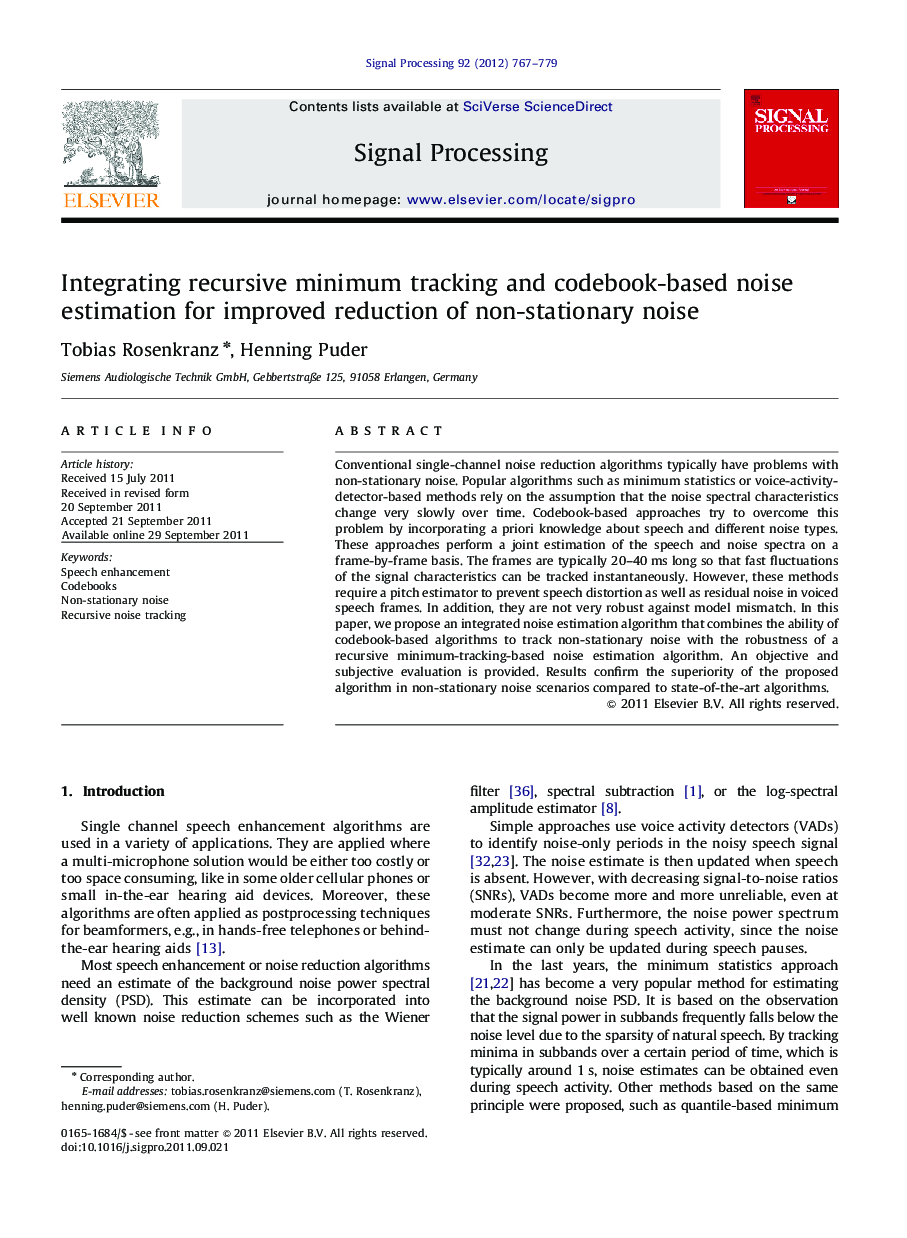| Article ID | Journal | Published Year | Pages | File Type |
|---|---|---|---|---|
| 563441 | Signal Processing | 2012 | 13 Pages |
Conventional single-channel noise reduction algorithms typically have problems with non-stationary noise. Popular algorithms such as minimum statistics or voice-activity-detector-based methods rely on the assumption that the noise spectral characteristics change very slowly over time. Codebook-based approaches try to overcome this problem by incorporating a priori knowledge about speech and different noise types. These approaches perform a joint estimation of the speech and noise spectra on a frame-by-frame basis. The frames are typically 20–40 ms long so that fast fluctuations of the signal characteristics can be tracked instantaneously. However, these methods require a pitch estimator to prevent speech distortion as well as residual noise in voiced speech frames. In addition, they are not very robust against model mismatch. In this paper, we propose an integrated noise estimation algorithm that combines the ability of codebook-based algorithms to track non-stationary noise with the robustness of a recursive minimum-tracking-based noise estimation algorithm. An objective and subjective evaluation is provided. Results confirm the superiority of the proposed algorithm in non-stationary noise scenarios compared to state-of-the-art algorithms.
► We integrate codebook-based and recursive minimum tracking based noise reduction. ► Combines the advantages of both methods, while minimizing their disadvantages. ► The approach is much more efficient than conventional codebook-based algorithms. ► We validate the approach with an extensive evaluation.
